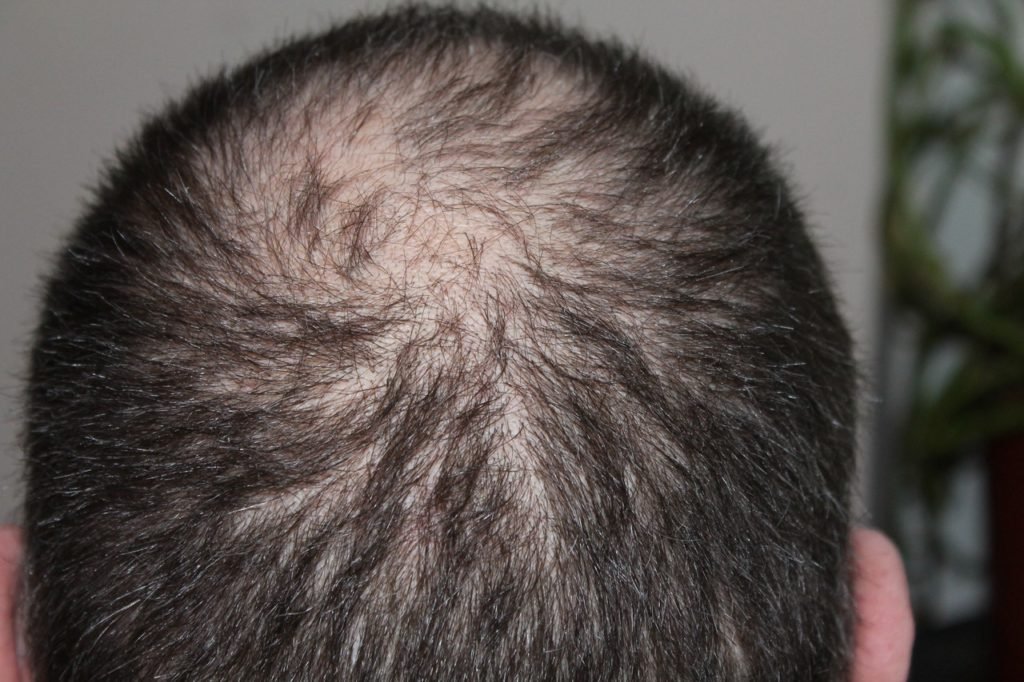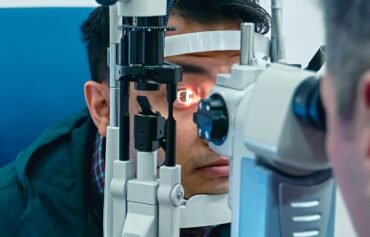Have you been hearing a lot about fish and wondering what’s all the rave about? Well, we’ve got you! You can get fish oil from oily fish like mackerel, salmon, tuna, etc., or from fish oil supplements. Fish oil is important because it is rich in omega-3 fatty acids (made up of EPA and DHA). This is an essential fatty acid, which means the body cannot produce it, it’s linked to plenty of health benefits, ranging from heart health to skin health. There are also specific health benefits based on gender, so let’s see the fish oil benefits for men.

1. Fertility
Studies show that fish oil supplementation is linked to improved fertility in men.
A recent 2020 study on a large sample size showed a dose-responsive association between fish oil supplementation and fertility, proving that it helps increase semen volume, total sperm count, testicular size, and higher free testosterone in men. These findings are in line with the findings of previous studies.
The relationship may be justified by the presence of a rich fatty acid content in the sperm cell membrane which is important for sperm function and fertilization. This fatty acid content, especially DHA increases as the sperm matures resulting in better sperm motility and concentration. Since the body cannot make DHA, its requirements need to be fulfilled via the diet. (1)
2. Heart Health
The rates of cardiovascular diseases have increased exponentially in the last few years and men are at a higher risk of developing heart diseases. The cardioprotective benefits of fish oil are well established, the interest around it developed nearly 4 decades ago when it was seen that Eskimos despite having a diet high in fat had low rates of heart attacks, since then plenty of research has been done to show the plethora of benefits fish oil has towards heart conditions and their mechanisms as follows:
- Anti-inflammatory Effect: Inflammation is one of the causes of metabolic diseases like atherosclerosis, myocardial infarction, ischemic heart disease, etc. Omega 3 fatty acids have a strong anti-inflammatory effect in our body and thus fish oil helps to fight off this increased inflammation which causes diseases
- Improves Lipid Levels: Fish oil helps to reduce triglyceride levels, high levels known as hypertriglyceridemia are a risk factor for heart conditions. Further, it also has beneficial effects on HDL cholesterol- the ‘good’ cholesterol in our body
- Atherosclerosis Plaque Stabilization: Atherosclerosis which is the buildup of plaque that is fats, cholesterol, and other substances in and on your artery walls is one of the main reasons for a heart attack. Omega 3 fatty acids help to reduce plaque formation as well as stabilizes it.
- Improved Exercise Tolerance: Reduced exercise tolerance is a risk factor for heart disease, omega 3 fatty acids improve exercise tolerance because of their beneficial effects on skeletal muscles, thus this improved exercise capability may result in a lower risk of adverse cardiac events.
Omega 3 also reduces platelet aggregation, vasoconstriction and increases vasodilation further reducing the risk of cardiac diseases
Despite the many mechanisms explaining the beneficial effects the clinical evidence surrounding fish oil consumption is contradictory, with some studies showing beneficial effects whereas some studies showing no benefits, but the inclusion of omega 3 in our diet is essential for healthy living. (2)
Also Read: Top nutrient dense foods on earth
3. Skin Health
Fish oil benefits for the skin is because of polyunsaturated fatty acid (PUFAs), a lack of PUFA may cause increased fine lines and wrinkles because it affects the skin barrier function and inflammation.
Due to the anti-inflammatory effect of fish oil, it may help with inflammatory skin conditions like acne, psoriasis, and dermatitis as well as reduce photoaging- aging because of exposure to UV light. Several human studies show that topical or oral PUFAs from fish oil help in attenuating UV-induced skin aging and it may also help with hyperpigmentation.
However, there are conflicting pieces of evidence in regards to the clinical benefits of fish oil because of various reasons. Although fish oil products are developed for lab and animal testing, clinical trials are still limited. There is a scope for future clinical research in the area of fish oils and skin health before making any proper conclusive statement.
4. Hair Health – Fish Oil Benefits For Hair

Fish oil benefits for hair may be attributed to its anti-inflammatory and anti-oxidant properties. A recent animal study showed that mackerel-derived fermented fish oil promotes hair growth (10). Studies also show that omega 3 supplementation decreases hair shedding in women. (11) However, there is not enough evidence to make claims and further research is needed.
Fish oil for kids

Being rich in omega-3 fatty acids, especially DHA, fish oil is vital in neural development thus their importance for children is a given. These benefits should be availed right from when the mother is pregnant, since fish and seafood are restricted during pregnancy, supplementation is preferred. Studies show that fish oil supplementation during pregnancy is associated with better neurological development, hand-eye coordination, and problem-solving skills.
A large-scale study conducted on mothers and their children showed that mothers who consumed fish oil supplements before and during their pregnancy those children had better neurodevelopment up to 3 years. (4)
Furthermore, an EPA and DHA-rich diet or supplementation at 9 and 12 months of age showed better cognitive results, 4-year-olds showed better listening comprehension and vocabulary, 7–12-year-olds with ADHD showed improved capacity, oppositional behavior, anxiety/shyness, and overall literacy and behavior of these children. (5)
Beyond neural development, studies also show that 6-to-12-month infants develop better visual acuity which is a measure of the ability of the eye to distinguish shapes and the details of objects at a given distance and has a protective effect against allergies in early childhood when DHA was included in the 1st year of life (5)
Despite the benefits of fish oil for kids always consult your pediatrician before starting any supplementation.
How to consume fish oil
Fish oil can be consumed through diet from fatty fish or fish oil supplements. Here is a list of fatty fish and fish oil supplements with the amount they provide:
| Fatty Fish | ALA | EPA | DHA |
| Salmon, farmed, cooked, 3 ounces | 1.24 g | 0.59 g | |
| Salmon, pink, canned, drained, 3 ounces | 0.04 | 0.63 g | 0.28 g |
| Herring, Atlantic, cooked, 3 ounces- 1.71 g | 0.94 g | 0.77 g | |
| Sardine, canned in tomato sauce, drained, 3 ounces | 0.74 g | 0.45 g | |
| Mackerel, Atlantic, cooked, 3 ounces | 0.59 g | 0.43 g | |
| Trout, rainbow, wild, 3 ounces | 0.44 g | 0.40 g | |
| Sea Bass, cooked, 3 ounces | 0.47 g | 0.18 g | |
| Tuna, light, canned in water, drained, 3 ounces | 0.17 g | 0.02 g |
Table 1: Fatty Fish and amount of ALA, EPA, DHA (6)
| Supplements | Serving Size | EPA | DHA | Other N-3 | Cost |
| Nature Made Fish Oil with Vitamin D | 2 softgel | Combined 1200 mg | $19.49 for 45 servings | ||
| Barlean’s Omega Swirl Fish Oil Lemon Zest | 1 tbsp | 660 mg | 420 mg | 270 mg | $22.94 for 20 servings |
| Barlean’s Fresh Catch Fish Oil | 2 softgel | 360 mg | 240 mg | 80 mg | $9.44 for 50 servings |
| Barlean’s Fresh Catch Fish Oil | 1 tsp | 768 mg | 497 mg | 316 mg | $20.65 for 47 servings |
| Carlson Very Finest Fish Oil | 1 tsp | 800 mg | 500 mg | 300 mg | $21.2 for 40 servings |
Table 2: Different fish oil supplements and their cost
Cod Liver Oil vs Fish Oil
Cod liver oil is essentially a type of fish oil. Since the cod fish isn’t fatty, the oil for these supplements is derived from the liver of such fish because they are rich in omega 3 fatty acids and vitamin A and D.
Both fish oil and cod liver oil have similar compositions and health benefits, with the exception that cod liver oil is richer in vitamin A and D but today you get supplements of fish oil with these vitamins as well.
Cod liver oil is not recommended during pregnancy because of its large levels of vitamin A and also be careful of associated potential vitamin D toxicity when taken in high doses, thus always consult a health professional before consuming these supplements
How much Fish Oil to Take?
Now that you are aware of the myriad of benefits associated with the consumption of fish oil as well as how to consume them, you must be wondering how much to take? There are no set recommendations of how much fish oil to take but rather how much n-3 fatty acid. The adequate intake, that is intake to ensure nutritional adequacy of omega 3 fatty acid is given below
| Age | Male | Female | Pregnancy | Lactation |
| Birth to 6 months | 0.5 g | 0.5 g | ||
| 7-12 months | 0.5 g | 0.5 g | ||
| 1-3 years | 0.7 g | 0.7 g | ||
| 4- 8 years | 0.9 g | 0.9 g | ||
| 9-13 years | 1.2 g | 1.0 g | ||
| 14-18 years | 1.6 g | 1.1 g | 1.4 g | 1.3 g |
| 19- 50 years | 1.6 g | 1.1 g | 1.4 g | 1.3 g |
| 51 + years | 1.6 g | 1.1 g |
Table 3: AI of omega 3 fatty acid (6)
Patients with heart diseases are recommended to have ≈1 g/d of EPA and DHA (7). AHA recommends 2 servings of fish every week
The dietary guidelines of America recommend 8 ounces of seafood per week on a 2000-calorie diet for adults. (8)
When you cannot meet requirements through diet, turn to the use of supplements
When to take it?
All supplements must be consumed at a particular time of day to maximize their benefits, similarly for fish oil, more than the time of the day, the food you eat matters.
Fish oil can be consumed at any time, but ensure that it is consumed with a main meal- breakfast, lunch or dinner, and this meal should have sources of fat in them, this helps maximize the absorption and reduce the risk of acid reflux.
Consuming fish oil on a fat-free diet or a fat-free meal is not recommended because it will not be absorbed well in the body
Safety and Risks
Side effects of fish oil supplements are mild, they may include unpleasant taste, bad breath, bad-smelling sweat, headache, gastric symptoms like heartburn, nausea, and diarrhea
There are conflicting results on the association between fish oil and prostate cancer, several large studies have linked a higher risk of prostate cancer with higher blood levels of omega- 3 fatty acids. On the other hand, it’s seen that men who frequently eat seafood have lower prostate cancer death rates. (9)
Avoid exceeding recommended amount of consumption and always consult a healthcare professional before starting any supplementation.
References:
- Jensen, T. K., Priskorn, L., Holmboe, S. et al. (2020). Associations of Fish Oil Supplement Use With Testicular Function in Young Men. JAMA Network Open, 3(1), e1919462. https://doi.org/10.1001/jamanetworkopen.2019.19462
- Goel, A., Pothineni, N., Singhal, M., Paydak, H., Saldeen, T., & Mehta, J. (2018). Fish, Fish Oils and Cardioprotection: Promise or Fish Tale? International Journal of Molecular Sciences, 19(12), 3703. https://doi.org/10.3390/ijms19123703
- Huang, T. H., Wang, P. W., Yang, S. C., Chou, W. L., & Fang, J. Y. (2018). Cosmetic and Therapeutic Applications of Fish Oil’s Fatty Acids on the Skin. Marine Drugs, 16(8), 256. https://doi.org/10.3390/md16080256
- Vollet, K., Ghassabian, A., Sundaram, R., Chahal, N., & Yeung, E. H. (2017). Prenatal fish oil supplementation and early childhood development in the Upstate KIDS Study. Journal of Developmental Origins of Health and Disease, 8(4), 465–473. https://doi.org/10.1017/s2040174417000253
- González, F. E., & Báez, R. V. (2017). IN TIME: IMPORTÂNCIA DOS ÔMEGA 3 NA NUTRIÇÃO INFANTIL. Revista Paulista de Pediatria, 35(1), 3–4. https://doi.org/10.1590/1984-0462/;2017;35;1;00018
- Office of Dietary Supplements – Omega-3 Fatty Acids. (2022). National Institute of Health. https://ods.od.nih.gov/factsheets/Omega3FattyAcids-HealthProfessional/
- Kris-Etherton, P. M., Harris, W. S., & Appel, L. J. (2002). Fish Consumption, Fish Oil, Omega-3 Fatty Acids, and Cardiovascular Disease. Circulation, 106(21), 2747–2757. https://doi.org/10.1161/01.cir.0000038493.65177.94
- Center for Food Safety and Applied Nutrition. (2022, June 8). Advice about Eating Fish. U.S. Food and Drug Administration. https://www.fda.gov/food/consumers/advice-about-eating-fish#:%7E:text=The%20Dietary%20Guidelines%20for%20Americans%20recommends%3A,that%20are%20lower%20in%20mercury.
- Omega-3 Supplements: In Depth. (2018). NCCIH. https://www.nccih.nih.gov/health/omega3-supplements-in-depth
- Kang, J. I., Yoon, H. S., Kim, S., Park, J., Hyun, Y., Ko, A., Ahn, Y. S., Koh, Y., Hyun, J., Yoo, E. S., & Kang, H. K. (2018). Mackerel-Derived Fermented Fish Oil Promotes Hair Growth by Anagen-Stimulating Pathways. International Journal of Molecular Sciences, 19(9), 2770. https://doi.org/10.3390/ijms19092770
- Role of Non Androgenic Factors in Hair loss and Hair Regrowth. (2017). International Journal of Clinical & Experimental Dermatology, 2(1). https://doi.org/10.33140/ijced/02/01/00003





